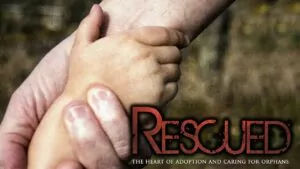On mundane faithfulness…
“Everybody wants to save the earth; nobody wants to help mum do the dishes.” – P. J. O’Rourke
Francis Schaeffer on being a cobelligerent, not an ally
Francis Schaeffer made an interesting distinction between allies and cobelligerents that any Christians involved in any sort of political movement needs to understand:
“Christians must realize that there is a difference between being a cobelligerent and an ally. At times we will seem to be saying exactly the same thing as those without a Christian base are saying. If there is social injustice, say there is social injustice. If we need order, say we need order. In these cases, and at these specific points, we would be cobelligerents. But we must not align ourselves as though we are in any camp built on a non-Christian base. We are an ally of no such camp. The church of the Lord Jesus Christ is different – totally different; it rests on the absolutes given to us in Scripture.
“My observation of many [Christians] is this: suddenly they are confronted by some two camps and they are told, “Choose, choose, choose.” By God’s grace they must say, ‘I will not choose between these two. I stand alone with God, the God who has spoken in the Scripture, the God who is the infinite-personal God, and neither of your two sides is standing there. So if I seem to be saying the same thing at one point, understand that I am a cobelligerent at this particular place, but I am not an ally.
“The danger is that the older [generation] will forget this distinction and become an ally of an establishment elite, and at the same time his son or daughter will forget this distinction and become an ally of some ‘leftish’ elite. We must say what the Bible says when it causes us to seem to be saying what others are saying, such as ‘Justice!’ or ‘Stop the meaningless bombings!’ But we must never forget that this is only a passing cobelligerency and not an alliance.” – A Christian View of the Church
Forgetting this distinction is where some Christians went off the rails with Donald Trump, excusing his evident sins (pride, arrogance, advocacy for homosexuality) because they thought he was our ally, and not just, at times, a cobelligerent. Canada’s Conservative Party under the pro-choice Erin O’Toole, presents another such dilemma/temptation: if we can use it – if we can treat it as a cobelligerent on some issues – wonderful, but Christians must not mistake it for an ally.
“But the Bible promotes slavery!”
C.S. Lewis in Mere Christianity gave guidance on how we should approach people who ridicule the Bible by taking a small bit of it out of context. He was specifically addressing ridicule directed at the thought of people playing harps in heaven (Rev. 14:2) but his point can be applied broadly to any instances – tolerance, judging, slavery, homosexuality, gender roles, etc. – where people know only a scant verse or two, but feel knowledgeable enough to mock the Bible:
“The answer to such people is that if they cannot understand books written for grown-ups, they should not talk about them.”
Psalm One Hundred and Sixty-Six
Anyone who knows anything about Corrie Ten Boom knows that this was a woman of great faith – she hid Jews in World War II because she trusted the Lord would take care of her, no matter what might happen. In her autobiography The Hiding Place she also shows herself to be a woman of great humor, recounting a version of this joke/riddle from those days.
Do you know how Psalm One Hundred and Sixty-Six begins?
But there is no Psalm One Hundred and Sixty-Six! It goes only to 150.
Shall I recite it for you?
Please do!
“Shout for joy!”
Ah, but that’s only the beginning of Psalm One Hundred!
And Sixty-Six too!
Inerrancy: a small huge difference
In his book Everyone’s a Theologian, R.C. Sproul notes how two very different positions on inerrancy can seem quite similar at first glance. He writes:
…note the difference in the following two statements:
-
- The Bible is the only infallible rule of faith and practice.
- The Bible is infallible only when it speaks of faith and practice.
The two statements sound similar, but they are radically different. In the first statement, the term only sets Scripture apart as the one infallible source with authoritative capacity. In other words, Scripture is the rule of our faith, which has to do with all that we believe, and it is the rule of our practice, which has to do with all that we do.
These words change their orientation in the second statement. Here the word only restricts a portion of the Bible itself, saying that it is infallible only when it speaks of faith and practice. This is a view called “limited inerrancy,” and this way of viewing Scripture has become popular in our day. The terms faith and practice capture the whole of the Christian life, but in this second statement, “faith and practice” are reduced to a portion of the teaching of Scripture, leaving out what the Bible says about history, science, and cultural matters. In other words, the Bible is authoritative only when it speaks of religious faith; its teachings on anything else are considered fallible.
Say it out loud
An Albertan, a Quebecer, a Spaniard, and a German were all on a Zoom call with their boss, who asked, “Can everyone see me?” to which they responded “Yup,” “Oui,” “Si,” “Ja.”
(h/t to Al Siebring)
Lyric of the month: “Chasing after the wind”
In the remarkable Christian film The Song (reviewed here,) singer Jed King learns life’s big lessons the hard way, much like King Solomon. He realizes, as Solomon teaches in the book of Ecclesiastes, that success apart from God is empty, a “Chasing after the wind.”
Why have everything? You’re leaving here with nothing.
Can’t take anything, because you have to move on.
You were the wise one, putting your disguise on.
Lying to pretend, you’re chasing after wind.
Why should you be, if no one’s there to see?
All your deeds are like raindrops in the sea.
What do we mean, if nothing has meaning,
If in the end we’re chasing after wind?
I have everything; that don’t leave me anything.
I have my plans crumbling in the sand.
Now I understand, I was born a natural man,
racing to the end, chasing after wind.
Why should I be, if nothing has made me?
All that I’ve done, will flame out with the sun.
Why should I sing, if nothing has meaning?
SOURCE: Written by Richard Ramsey and performed by Alan Powell
Jesus never said homosexuality was sinful?
In a guest appearance on the Piers Morgan Live talk show that used to run on CNN, the host asked Dr. Michael Brown about Jesus’ thoughts on homosexuality.
PIERS MORGAN: Can you point to a single public utterance by Jesus Christ – the Christ in Christianity – about gay people or about a gay lifestyle? Can you name one single thing?
MICHAEL BROWN I’ll name you three for you Piers. Number one, in Matthew 5 Jesus said he didn’t come to abolish the Torah but to fulfill. He takes the central morals of the Torah to a higher level. In Matthew 15 he says that all sexual acts committed outside of marriage defile a human being, and in Matthew 19 He says marriage as God intended is the union of one man and one woman for life. Look, Jesus did not [directly] address wife-beating or heroin-shooting, but we don’t use that argument of silence [for those]…. We should love our neighbor as ourself, but that doesn’t mean that we approve of everything of our neighbor.















